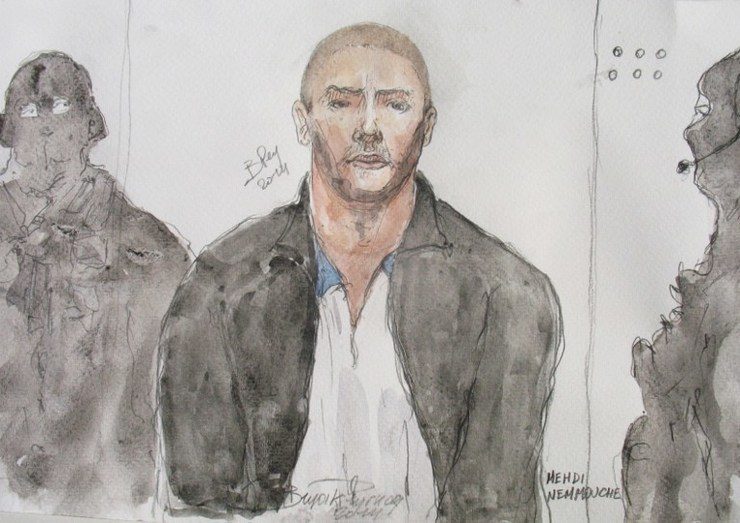SUMMARY
This is AI generated summarization, which may have errors. For context, always refer to the full article.

PARIS, France – Revelations that the suspected gunman in the deadly shooting at the Jewish Museum in Brussels had also served as a captor and torturer in Syria shows Europe’s vulnerability to terror attacks, experts say.
Mehdi Nemmouche, who was extradited to Belgium over the May 24 shooting which killed four people, was identified this weekend by a French journalist as being among his Islamic extremist captors in Syria.
Writing on the website of his former employer Le Point magazine, Nicolas Henin said the 29-year-old was his feared and violent jailer between July and December 2013.
The claim immediately set off alarm bells in Europe.
“This is the first successful terrorist act on European soil linked to Syrian networks,” said terrorism expert Jean-Charles Brisard.
Hundreds of others like Nemmouche, a Frenchman of Algerian descent, have returned to Europe as battle-hardened veterans with a capacity to sow terror and create havoc.
“It’s a mass phenomenon which is increasingly growing,” said Louis Caprioli, who headed the anti-terror wing of France’s domestic intelligence agency between 1998 and 2004.
British Prime Minister David Cameron has said at least 500 people from Britain have gone to Syria and Iraq to wage jihad of whom about 250 have returned.
In France, about 950 people are thought to fight or have fought in Syria, returned or in the process of going there.
Brisard, who puts the number of Europeans who have fought in Iraq and Syria or are still fighting there at about 3,200, says Europe is ripe for fresh terror attacks.
“The secret services know it is just a question of time,” he said, a view echoed by US terrorism expert Matthew Olsen, who says the threat for Europe is “relatively immediate.”
French journalist Henin, one of a group of four journalist hostages freed in April, said Nemmouche was a dreaded figure.
“When Nemmouche was not singing, he was torturing,” wrote Henin in an article published on Saturday, September 6.
“He was part of a small group of Frenchmen whose visits would terrify the 50-odd Syrian prisoners held in the cells nearby.”
“Every night the blows would start raining down in the room, where I was also interrogated. The torture lasted all night, until dawn prayers.”
Interior Minister Bernard Cazeneuve confirmed that French intelligence services had “transferred elements to the judiciary that suggest (Nemmouche) may have been the jailer of our hostages,” following a report in Le Monde newspaper.
Europe ripe for attacks
Le Point said that Henin had kept quiet on Nemmouche’s role in his detention to protect the Western hostages still being held by Islamic State (ISIS) militants, but decided to speak out following Le Monde‘s report.
Nemmouche is slated to appear on September 12 before a Brussels judge who will decide whether to extend his preventive detention.
The attack in broad daylight left an Israeli couple, a Frenchwoman and a Belgian man dead, and raised fears of more terror attacks.
Nemmouche was arrested in the southern French city of Marseille days afterwards.
He has been sentenced seven times in France, including for armed robbery, and has spent seven years in jail, where he was found proselytizing Islam.
Governments say hundreds of Westerners have joined extremist groups in Syria.
Two American journalists, James Foley and Stephen Sotloff – with whom Henin said he was kept for a period – were videotaped being beheaded by a militant who spoke on camera with a British accent.
Experts said European governments were ill-equipped to deal with this threat.
“Twenty-four hour surveillance on a sole suspect who uses three or four different telephone numbers, that’s already the work of 30 policemen. How does one manage?” said an expert speaking on condition of anonymity.
Brisard added: “We know from past experience in Afghanistan and Chechnya that one person out of nine returning from these zones is engaged in violent or terrorist acts.” – Rappler.com
Add a comment
How does this make you feel?
There are no comments yet. Add your comment to start the conversation.